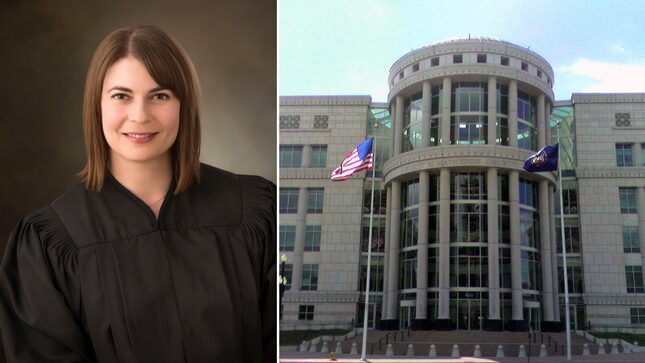Judge Reminds Anti-Abortion Attorneys That No Women Helped Draft Utah’s Constitution in 1895
Lawyers defending Utah's trigger ban said the state Constitution is clear that abortion should be prohibited. Judge Paige Petersen reminded them who wrote it.
AbortionPolitics

Anti-abortion attorneys defending Utah’s abortion trigger ban, which is currently blocked, on Tuesday appealed to the state Supreme Court by calling on the justices to focus on the state Constitution in deciding whether to lift the injunction on the ban. They argued that Utah’s Constitution is clear that abortion should be prohibited: “There is an unbroken history and tradition … before 1973 [when Roe v. Wade was decided], of prohibiting abortion. And that unbroken history has to be part of this Court’s analysis, rather than present-day policy arguments about the benefits or the or lack thereof of abortion,” attorney Taylor Meehan argued.
In response, Judge Paige Petersen reminded Meehan of some state history that the attorneys defending the law seemed to be forgetting: “Women were in the audience, but they weren’t any of the delegates” who helped create the state Constitution in 1895, Petersen said, according to Axios. “How do we know … what they thought the meaning of their rights were? It seems important in this context because women are the ones that experience pregnancy and experience childbirth.”
-

-

-

-

-

-

-

-

-

-

-

-

-

-

-

-

-

-

-

-

-

-

-

-

-

-

-

-

-

-

-

-

-

-

-

-

-

-

-

-








































